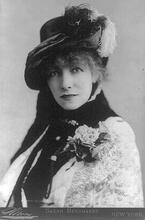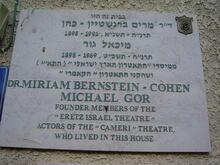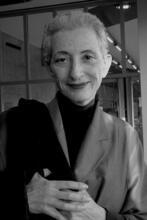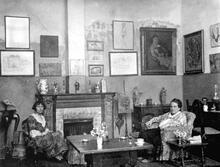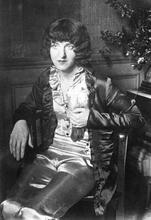Aurora Levins Morales
Aurora Levins Morales is a Puerto Rican author, artist, activist, and historian. Her writing and activism persistently imagine a world in which the personal is understood as political and vice versa, the complexities of identity and heritage are explored rather than erased, and structures of oppression (racism, classism, sexism, imperialism, colonialism, capitalism, etc.) are recognized as interlocking, such that they must be simultaneously challenged to be dismantled. Her contributions have been critical to third wave feminism and its evolution, Puerto Rican and Latinx feminism, disability justice, radical Judaism, climate change activism, and grassroots organizing.
Say these words when you lie down and when you rise up,
when you go out and when you return. In times of mourning
and in times of joy. Inscribe them on your doorposts,
embroider them on your garments, tattoo them on your shoulders,
teach them to your children, your neighbors, your enemies,
recite them in your sleep, here in the cruel shadow of empire:
Another world is possible.
- Aurora Levins Morales, “V’ahavta” (2016)
Growing Up in an Activist Family
Born on February 24, 1954, in Indiera Baja, Puerto Rico, Aurora Levins Morales was raised in rural Puerto Rico and on the South side of Chicago. The daughter of Puerto Rican author Rosario Morales, who was not Jewish but wrote about the Jewishness that permeated her life, and professor and ecologist Richard Levins, an Jews of European origin and their descendants, including most of North and South American Jewry.Ashkenazi Jew of Ukrainian heritage, Levins Morales grew up surrounded by her parents’ activist work as members of the Communist Party and the movement for Puerto Rican Independence. She became an activist in her own right, as a young member of the Chicago Women’s Liberation Union, in demonstrations against the Vietnam War, and as part of the 1980s swell of writing by Women of Color. In her lifelong career of activism and grassroots organizing, she has participated in various solidarity movements, including with the Black Panthers, Jews organizing for Palestinian solidarity, and Chilean exiles fighting the military regime (1973-1990), among others.
In 1975, Levins Morales received her A.A. degree from Franconia College in New Hampshire before moving to the San Francisco Bay Area. There, at the age of 22, she worked for the Third World News Bureau of KFPA, a community-funded radio station in Berkeley, became involved with the Puerto Rican socialist party, and wrote for La Peña Cultural Center. With La Peña’s Cultural Productions Group, she wrote and produced performance pieces and even wrote a The "guide" to the Passover seder containing the Biblical and Talmudic texts read at the seder, as well as its traditional regimen of ritual performances.Haggadah that included a recording of Central American refugees who, upon arrival in guerrilla territory, are compared to the Israelites by a liberation theology priest drawing parallels between their respective journeys to freedom. This Haggadah represents just one example of how Levins Morales draws connections between Jewish, Latin American, and Jewish Latin American struggles. During the same time period, she participated in the burgeoning movement of radical Women of Color in the United States and contributed to the seminal collection This Bridge Called My Back: Writings by Radical Women of Color (1981).
As Levins Morales’ writing flourished, she co-wrote her first book, Getting Home Alive (1986) with her mother, Rosario Morales. The book traverses various genres, including individually authored poems, short stories, fragments, and reflections. Levins Morales’s contributions to the collection tell the story of the daughter of returnees to Puerto Rico, an immigrant daughter of immigrants, who is considered rich and white in Puerto Rico and middle-class and “other” in Chicago; she grows up in a colonized territory and needs to speak out against the ongoing violence toward Palestinians. As with her other writing, Jewishness represents one component of her complex poetic voice, along with being a woman, Puerto Rican, light-skinned and of color, and occupying both privileged and disenfranchised positions. Through the collection, Levins Morales and her mother shout their complexities and contest the oppressive structures that attempt to silence or flatten them.
Historical Research and Storytelling as Activism
In the year 1988-1989, Levins Morales returned to undergraduate studies at Mills College, where she studied Creative Writing and Ethnic Studies. She earned her Ph.D. in Women’s Studies and History from The Union Institute in Cincinnati, Ohio, where she studied from 1991 to 1996. Her graduate work and dissertation research centered on studying history to learn about inherited power dynamics. This research led directly to two books: Remedios: Stories of Earth and Iron from the History of Puertorriqueñas (1998) and Medicine Stories: History, Culture, and the Politics of Integrity (1998, revised and significantly expanded for republication in 2019 under the title Medicine Stories: Essays for Radicals). In these books, she posits storytelling as a mode of resistance, a tool for healing, and a means of creating a better world.
In Remedios, Levins Morales delves deeply into the past to tell the stories of women who often appear only in the footnotes of historical works, if at all. Piecing together traces of information about indigenous, African, Jewish, and many other groups of women, she imagines their voices and inscribes them in writing. Spanning thousands of years, the book presents countless women’s voices alongside herbal remedies, both viewed as salves for healing the violence that has shaped women’s lives, especially those of women of color and indigenous women. This imaginative practice constructs a chorus of women’s voices, including the author’s own poetic voice speaking of her experience of sexual violence and survival as part of this heritage.
In Medicine Stories, Levins Morales presents strategies for working toward a more just world and describes what such a world could look like. The 2019 revised collection presents a comprehensive call for justice in the twenty-first century and a guide to grassroots organizing in response to the climate crisis, expanded extractive capitalism, and persistently entrenched structures of oppression, including racism, sexism, classism, ableism, colonialism, imperialism, and more. Levins Morales recognizes these forms of domination and violence as connected to and dependent on each other, and she calls for readers to think beyond any one form of oppression, to imagine a world that meets the needs of all.
Disability Rights and Continued Activism
In her fourth book, Kindling: Writing on the Body (2013), Levins Morales focuses even more explicitly on the disability justice movement. The collection brings together poetry, prose, essays, memoir, and performance pieces that explore the self from the perspective of the body, especially the chronically ill and disabled body. She considers her own body’s illnesses, its heavy exposure to pesticides, survival of sexual abuse, stroke, and head traumas such as concussions. In opposition to extractive capitalism that might deem her body disposable, she promotes a new framework of inclusion based on inherent worth, in which each person has something to offer society.
In addition to her writing, Levins Morales has given multiple talks about disability justice in which she implores her audience to imagine how society must change in order to value the inherent worth of every body. She has also expanded this work, for example with other artists in the performance collective Sins Invalid, by writing the “Ten Principles of Disability Justice” (2015).
Levins Morales has continued to write about sexism as it remains connected to racism, classism, capitalism, climate change, and other ongoing struggles. Cosecha and Other Stories (2014), her second co-written book with her mother, was published soon after her mother’s passing. Each story is explicitly marked as either memoir or fiction, and written by either Aurora or her mother, though the individual texts sometimes blur the lines between these genres and authorship. Each of Aurora Levins Morales’s fiction pieces features women who listen to their own needs, pursue their pleasures, and prioritize themselves, sometimes at the expense of the men they love. Her memoirs describe confronting culture shock, racism, and classism while growing up in Chicago and Puerto Rico, as well as her heritage of strong women and labor activism, and the experience of queer love.
Writing and Activism: Imagining A Better Future for All
Puerto Rican, multiracial, Jew of color, bisexual, immigrant, mixed class, woman, chronically ill and disabled, in her work Levins Morales portrays these as the constructs of her heritage and identity. Her voice remains critical to the evolution of feminist theory, to the search for solutions to the climate crisis, and to eradicating racist and sexist thought. Through her writing and activism, Levins Morales has consistently imagined a better future and sought to construct stories that enable a better world. Rather than accommodating the structures of oppression, she has fought against them and thus provided methods of working both collectively and individually for a better world. Her work emphasizes the importance of telling stories that enable people to see what is possible, to understand how systems could change, in order to envision the possibility of liberation for all.
Through her website, Levins Morales has continued sharing her writing and activism, as well as online networking, fundraising, and community-building. Recently she traveled the United States in a sustainable house on wheels to gather stories of water and land struggles. In Silt: Prose Poems (2019) she reflects on rivers and water as she travels down the Mississippi River. New projects include, among others, the Rimonim Liturgy Project, which seeks to rewrite Jewish liturgy as rooted in the global Jewish diaspora, with Jews of Color and Descendants of the Jews who lived in Spain and Portugal before the explusion of 1492; primarily Jews of N. Africa, Italy, the Middle East and the Balkans.Sephardi and Lit. "Eastern." Jew from Arab or Muslim country.Mizrahi Jews at the center rather than at the margins.
Selected works by Aurora Levins Morales
“A Sweet Year of Struggle.” Patreon.com. September 17, 2020. https://www.patreon.com/posts/sweet-year-of-41712882?l=de.
Medicine Stories: History, Culture and the Politics of Integrity. Revised and Expanded Ed. Duke University Press, 2019
Silt: Prose Poems. Cambridge: Palabrera, 2019.
With Brooke Lober. 2019. “Everything's Connected: An Interview with Aurora Levins
Morales.” Meridians: Feminism, Race, Transnationalism 18, 2 (2019): 372-393.
“V’ahavta.” Aurora Levins Morales.com. July 25, 2016.http://www.auroralevinsmorales.com/blog/vahavta.
Sins Invalid. “Ten Principles of Disability Justice.” September 17, 2015.https://www.sinsinvalid.org/blog/10-principles-of-disability-justice.
With Rosario Morales. Cosecha and Other Stories. Cambridge: Palabrera, 2014.
Kindling: Writings on the Body. Cambridge: Palabrera, 2013.
With Margaret Randall. “Straddling Worlds, Bringing Your Whole Self.” Bridges: A Jewish Feminist Journal. 16, 1 (2011): 44-50.
Interview by Kelly Anderson. Transcript of video recording, September 28 and 30, 2005. Voices of Feminism Oral History Project, Sophia Smith Collection.
Medicine Stories: History, Culture and the Politics of Integrity. Cambridge: South End, 1998.
Remedios: Stories of Earth and Iron from the History of Puertorriqueñas. Cambridge: South End, 1998.
Getting Home Alive. Ithaca: Firebrand, 1986.
Anzaldúa, Gloria E. and Cherríe Moraga, eds. This Bridge Called My Back: Writings by Radical Women of Color. Watertown, MA: Persephone, 1981.
Bost, Suzanne, and Aurora Levins Morales. "Shared Ecologies and Healing Justice in the Work of Aurora Levins Morales: An Interview". MELUS. 42, 1 (2017): 186-203.
The Latina Feminist Group. Telling to Live: Latina Feminist Testimonios. Durham: Duke University Press, 2001.




